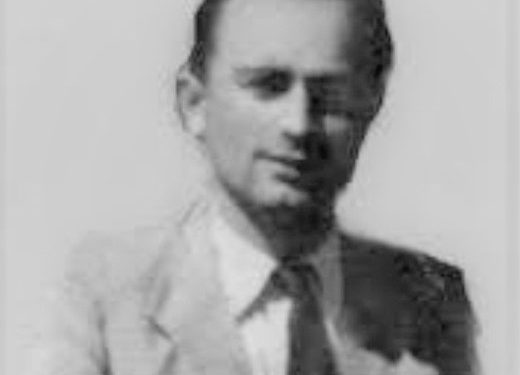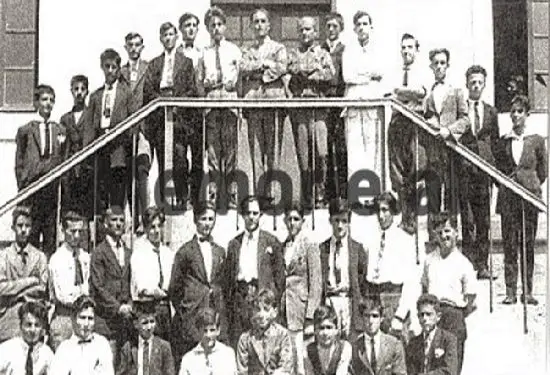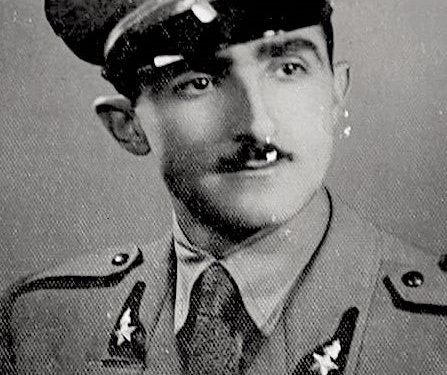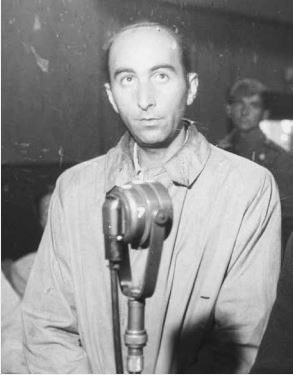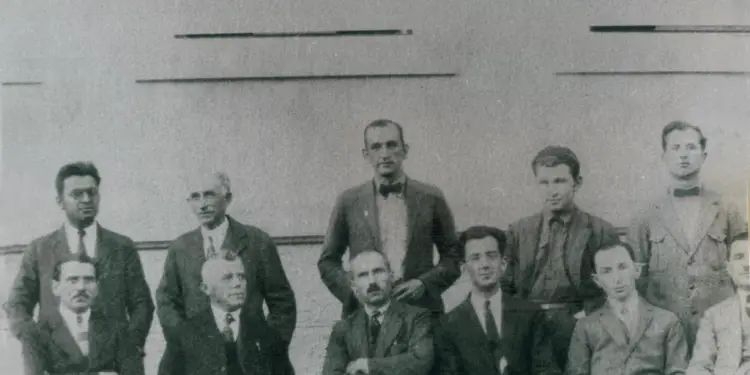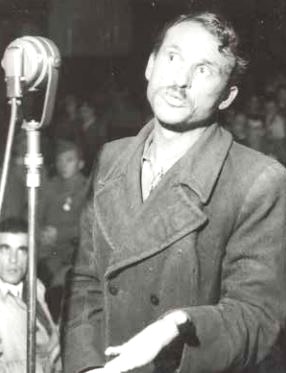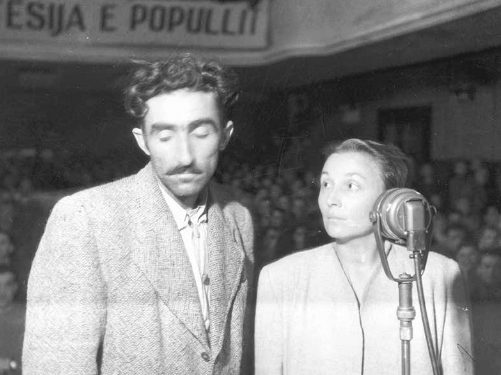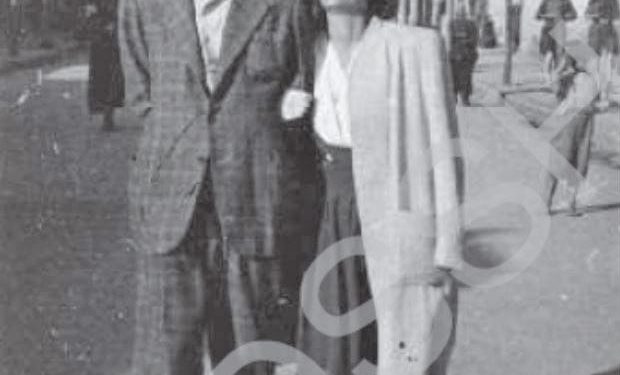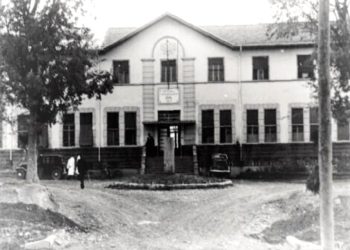By Prof. Dr. Sonila Boçi
Part Two
Memorie.al / The year 1946 marked a turning point in the history of Albania, and more widely. The contradictions between the Great Allies, the USA and Great Britain on one hand, and the Soviet Union on the other, were becoming increasingly apparent. The ideological war, the expansion of spheres of influence, and the imposition of governing systems had caused what Winston Churchill would call the “Iron Curtain” to fall across Europe. This situation would directly affect a small country like Albania.
Continues from the Previous Issue
The trial did not have any unexpected developments. During its 10 days, the accused, the prosecutor, prosecution witnesses, and defense lawyers were heard. The accused generally stood by the statements they had made during the investigation and admitted to having worked against the “people’s power.”
Kujtim Beqiri, who, due to his connections with the ‘Balli Kombëtar’ (National Front) during the Second World War, was considered by the regime a natural enemy, was forced to admit that he had worked against the power and that he had committed sabotage. There are contradictory elements in his testimony. He admits that when Fultz came to Albania, he, along with Abdyl Sharra, Namik Xhelili, and Beqir Çela, went to meet him.
He admitted that he had sympathy for the USA and had hoped that Fultz would give them clarification on the situation in Albania and the political situation, “since we were dissatisfied with the government, which we considered provisional. Fultz also confirmed our thoughts about the government, telling us that the situation here in Albania would change quickly; therefore you must work as the technicians you are. We went to Fultz to welcome him, but more so to share our troubles against the government!”
Vasil Mano admitted in court that: “I have acted against the power ever since those two UNRRA (United Nations Relief and Rehabilitation Administration) people came. Luigj Poci, Hans Vali, and the other comrades told me in the meetings we held that we should not despair, as the situation would change, because the Allies would not allow a regime like this to remain on the shore of the Adriatic, and therefore this will change quickly.”
The Italian, Scaturo, declared that: they did not believe that the government established in Albania had strong foundations “and the situation could quickly change, with the intervention of the Anglo-Americans and the Greeks. We discussed the peace treaties and said that the conclusions of this treaty would be that there would be an Anglo-American influence in Albania.” It is striking that the only facts presented in court were the self-admission of the accusation, as well as the accusations the defendants made against each other.
Throughout the process, the defendants did everything possible to alleviate their personal guilt, shifting the blame onto others. Pandeli Zografi admitted that: “I committed sabotage on the Decauville rail line, according to the instructions I received from engineer Sharra and engineer Mano; I also committed sabotage on the wagons, by not giving wagons to Guarnieri, who requested them, so that the workers were left without work for several days.”
To support this assertion by Zografi, Eugenio Scaturo declared that: “Zografi extended the Decauville line 200-300 meters and then uprooted it; he did this with the intent of sabotage and to prolong the work; he did this action at the bend of the Korçë-Pogradec road.
This caused a damage of 4000-5000 francs. He also committed sabotage on the locomotives, delaying their repair with the pretext that spare parts were missing; this work was also done to delay the construction and the transport of the stones, which were supposed to cover the sides of the canal; so that with the approach of autumn, due to the lack of covering the slopes, the earth would fall, and thus all the work would be in vain. This was large-scale sabotage.”
Vasil Mano added that: “Pandeli Zografi also committed sabotage by inciting conflicts among the locomotive drivers, who also complained.” Another assertion by Eugenio Scaturo, the Italian economist who did not speak Albanian, is interesting; he declared in court that: “engineer Sharra, engineer Mano, and Pandeli Zografi often used the terms Berat and Egypt in conversations, which must have been the slogans they had between them.”
Given that the statements being made in court could be contradicted by the statements the accused had made in the meeting with the Control Commission, Kujtim Beqiri declared in court that: “When the Control Commission arrived, seeing that we were in danger, we decided to reduce our sabotage activities. The Commission questioned us one by one about the shortcomings that had occurred during Sharra’s time.
When the Commission arrived, we held a meeting where we decided how we would respond to the Commission. As a young person, I would speak technically. Engineer Mano would insult Sharra. Pandeli Zografi would play the role of the fool, pretending not to know anything. Engineer Aleks Vasili would defend Sharra! Since Mano did not defend Sharra, he argued with Aleks, who told him that men do not argue like that!”
In the investigative file, there are facts that do not align or that contradict each other. This shows the investigators’ carelessness regarding the accuracy of the facts, but their interest in punishing the “enemies.” Kujtim Beqiri claimed in court that: they were paid by the American Mission for the sabotages in Maliq. “We received money from Fultz,” he stated.
“Engineer Sharra received 150 gold napoleons (sovereigns), and I received 200 (gold napoleons) sovereigns; we used this money to give to the people who cooperated with us in the sabotage actions. Fultz himself gave us this money personally. I do not recall Fultz’s pseudonym.”
However, a good portion of the defendants, including Zyrika Mano, who was accused as the liaison between the “saboteurs” group and Fultz, denied having received money from the latter. To Kujtim Beqiri’s statement that Zyrika had brought him 50 gold napoleons from Fultz, Zyrika replied that: “It is not true that I brought Kujtim money from Fultz. The eight gold napoleons that were found in my purse were from my husband.”
Similarly, Abdyl Sharra testified that he had sent three letters to Fultz, through Zyrika Mano, while Zyrika reminded him that she had only been in Tirana once and that “Sharra gave one letter himself to the American Mission personnel who came to Maliq.” Clearly, Zyrika Mano confused the UNRRA representatives with those of the American Civil Mission, which makes one doubt her connections with the latter even more.
Many details about the meetings or the sabotage work did not align. In most cases, the prosecutor’s interventions to emphasize the facts were not of a legal nature but more of a political nature, with the aim of shaping public opinion about the defendants’ treason. During Abdyl Sharra’s deposition, the prosecutor intervened several times.
One of these interventions was to read a statement by 26 other engineers, who “request the severe punishment of the traitors by the people’s court.” In another intervention, the prosecutor stressed: “The defendants claim here that they were misled by foreigners, but did they not see the actions of the foreigners who worked against the interests of our people [?],” and then read a telegram from the Maliq workers against the accused.
Despite these factors, the trial concluded as predetermined. All the accused, with the exception of the Italian surveyor, Mario Guarnieri, accepted the charge of sabotage and sought the mercy of the court.
The final word before the court of engineer Vasil Mano was very touching; he did not ask for mercy for himself, but for his wife, Zyrika. Mario Guarnieri was the only one who did not accept the sabotage in the Maliq Marsh either. “I was assigned by engineer Mano the excavators, the setting of the pickets, and the payment for the work.
I did not consider the negligence that occurred as sabotage, as I did not know that sabotage was taking place and no one spoke to me about it. I considered the work that was done without criteria as negligence, such as the use of excavators and the poor assignment of work; also, in a job that had not yet finished, the excavator was removed and sent to another place, and then returned to the same job again.”
The Court found all the defendants guilty, labeling them as saboteurs and enemies of the people. The two leaders of the work for the draining of the Maliq marsh, Abdyl Sharra and Kujtim Beqiri, were sentenced to death by hanging; engineer Vasil Mano, his wife Zyrika, and the Italian accountant, Eugenio Scaturo, were sentenced to execution by firing squad; the surveyors Pandeli Zografi and the Italian Mario Guarnieri, to life imprisonment; the other surveyor, Mihal Stratobërdha, was sentenced to 10 years in prison and forced labor;
The worker Anastas Risto, to 2 years of imprisonment and forced labor; while the 16-year-old Jani Vasili was sentenced to “1 year of imprisonment on the condition that he maintains good moral and political behavior.” For those sentenced to imprisonment, the confiscation of their personal assets and the loss of their civil and political rights were also ordered. The execution of the death penalty was decided to take place in Maliq.
This process closed the curtain on an act of tragedy that was beginning to be played out at the expense of Albania’s educated and qualified people, but this would not be the last. The State Security organs had decided to exploit this event well, to eliminate all potential opponents of the communist regime.
In a report that the III Directorate of the Ministry of Internal Affairs sent to their superiors, they explicitly admitted that: “We aim to uncover the sabotages that have been committed in other districts, the connections these have had in Tirana, their elements and agents in the districts, when they were organized, by whom and when they were organized, how far this action would proceed, where they had their bases, how the government’s bankruptcy was being laid out in relation to the sabotages, and who the elements in the government were.”
They advised to continue other arrests in Maliq and to find the connections that the engineers and technicians of Maliq might have with engineers and technicians in the Ministry of Public Works in Tirana, or elsewhere in Albania.
Thus, even before the first Maliq trial was over, another process was being built. On October 29, 1946, the State Security organs arrested engineer Aleks Vasili, surveyor Mirush Përmeti, the Austrian Hans Vala, the driver Lambi Napuçe, and the Italian doctor, Golfredo Pascual Rizo.
The accusation was similar to that for the first group. They were being tried as enemies of the people, saboteurs of the government, and members of the group of engineers and technicians of Maliq. On November 21, 1946, also in the “Nacional” cinema hall, the open trial for this group began.
During the trial, they openly admitted that they had no sympathy for the regime established in Albania; they also admitted that in Maliq, work had not gone as it should, there had been delays, lack of organization, etc.; they even considered themselves guilty for not having spoken sooner about these problems they had noticed in Maliq, but at the end of the process, they did not admit to having committed sabotage or to having been part of any group of saboteurs.
The lack of admission of guilt did not prevent the prosecutor of the case from demanding the death penalty for engineer Aleks Vasili and surveyor Hans Vala, and heavy imprisonment for the other three. Nor did it prevent the court from issuing the death penalty for engineer Aleks Vasili and surveyor Mirush Përmeti at the end of the trial.
Hans Vala, the Austrian surveyor who had worked in many areas of Albania since 1940, was sentenced to 30 years in prison, the Italian doctor Golfredo Rizo, to 10 years in prison, and Lambi Napuçe, to 5 years. Memorie.al




